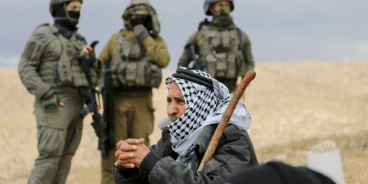
Atrocity Alert No. 30: Iraq, Philippines and Democratic Republic of the Congo
Atrocity Alert is a weekly publication by the Global Centre for the Responsibility to Protect highlighting and updating situations where populations are at risk of, or are enduring, mass atrocity crimes.
Iraq
There is growing evidence of mass atrocity crimes perpetrated by the so-called Islamic State of Iraq and the Levant (ISIL) since the 17 October start of an Iraqi government offensive to retake Mosul. ISIL has forcibly displaced thousands of people and used civilians as human shields. On 7 November Iraqi government troops discovered a mass grave containing at least 100 decapitated bodies in the town of Hamam al-Alil, about 19 miles south of Mosul. The UN Office of the High Commissioner for Human Rights is investigating whether the grave is connected to the alleged massacre of 50 former Iraqi police officers by ISIL last month. As the Mosul offensive continues, it is essential that all parties take effective measures to ensure the protection of all civilians in accordance with international humanitarian law. It is also crucial that all perpetrators of war crimes and crimes against humanity be brought to justice.
Philippines
Since President Rodrigo Duterte took office on 30 June 2016 over 4,000 people have been killed during the Philippines government’s violent crackdown on alleged dealers and users of illegal drugs. On 3 November the spokesperson for the Philippines National Police responded to widespread international criticism by inviting the United Nations, European Union and international human rights organizations, including the Global Centre for the Responsibility to Protect, to the Philippines to investigate. The Philippines government must immediately halt extrajudicial killings and should open investigations into the deaths that have already occurred during its “war on drugs.” Furthermore, the government should retract statements calling upon armed vigilante groups to commit violence against suspected drug users. Widespread and systematic extrajudicial killings in the Philippines may constitute crimes against humanity under international law.
Democratic Republic of the Congo
Following widespread protests that resulted in 50 civilians killed in Kinshasa during September, the Democratic Republic of the Congo (DRC) faces an imminent risk of further violence as a result of disputes over the presidential election process. Despite the government and some opposition members signing a political accord on 18 October, many opposition supporters continue to reject President Kabila serving beyond the constitutionally-mandated end to his term on 19 December. The accord will leave Kabila as acting president until elections in 2018. The UN Security Council will undertake a visit to the DRC on 10 November to address ongoing tensions. Security Council members should encourage the DRC government to respect the right to peaceful assembly and ensure that security forces refrain from using unnecessary deadly force during demonstrations.


